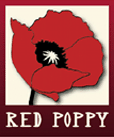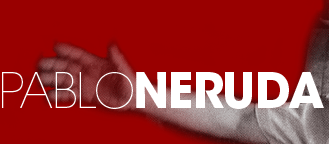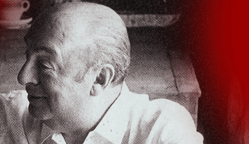


Brief Biography of Pablo Neruda Ricardo Neftalí Reyes Basoalto (Pablo Neruda 1904-1973) grew up in the hard-scrabble logging town of Temuco in Chile’s rugged southern frontier. He would later blame the endless rain for his melancholic personality, but beyond poetic license, the death of his mother from tuberculosis when he was two months old, his father’s hot temper, and family’s endemic poverty are more likely culprits. Young Ricardo was raised by his stepmother, whom he reverently called Ma’madre—more mother. He rode the rails with his father, a conductor on the maintenance train fleet. On these journeys he witnessed the indignities suffered by the railroad workers and local Mapuche Indians. By the time he was 14, Ricardo had published his first poems. In a rage his father burned the adolescent’s writings. After that, he would publish under the name of Pablo Neruda: Pablo for Paul Verlaine, his favorite French poet, and Neruda for Jan Neruda, Czech writer. Neruda moved to Chile’s capital Santiago, where he attended university and participated in the anarchist student movement. When he was 20 years old, Neruda released Veinte Poemas de Amor y una Cancion Desesperada (Twenty Love Poems and a Song of Desperation). The volume would eventually sell millions of copies worldwide, an unprecedented accomplishment for modern poetry in any language. The young poet’s notoriety gained him a diplomatic post in the Chilean government, and he was sent to Burma and Sri Lanka. There he married a Dutch woman whom he eventually scorned and abandoned. Neruda later became Chile’s cultural attaché to Republican Spain, where he joined a group of intellectuals and artists that included his future wife, Delia del Carril, and the poet Federico García Lorca. The bloodshed of the Spanish Civil War and crushing of the Republican government by Franco’s fascist forces were watershed experiences in Neruda’s life. From that point on, he would ally his poetry and his person with the international fight against fascism. Neruda’s staunch Stalinism dated from this era, when in spite of the Stalin-Hitler pact, he would see the Soviet Union as the world’s chief defender of freedom. Although he was aware of Stalin’s crimes, Neruda maintained silence—he would not burn the flag he was cloaked in. Throughout the 1930s and 1940s, Neruda published prolifically, including the multi-volume Residencia en la Tierra (Residence on Earth), a groundbreaking collection of modernist poetry. Neruda also joined the Chilean Communist Party and was elected senator representing the militant miners of northern Chile. But in the post World War II era, Neruda’s outspoken condemnation of Chile’s exploitation by U.S. corporations led to charges of subversion, and the poet was persecuted and forced into exile, with a dramatic escape across the Andes. Neruda was granted asylum abroad, and throughout the Cold War era, he moved from country to country. In spite of this constant travel, Neruda wrote volume after volume of poetry, including his most explicitly political work, "Canto General." This poetic manifesto took on Latin America’s legendary exploiters, from the Spanish Conquistadores to multinational corporations such as the United Fruit Company. With the easing of Cold War repression in the late 1950s, Neruda returned to Chile and joined the progressive parties organizing to revolutionize Chile by the ballot box. When the socialist Salvador Allende launched his 1969 candidacy for the presidency, Pablo Neruda ran against him on the Communist Party ticket. But in the run-off election, Neruda threw his support behind Allende, who became the world’s first democratically elected Marxist president. Allende appointed Neruda ambassador to France, the fulfillment of a lifelong dream. In 1971 Neruda received the Nobel Prize for Literature, which he accepted, “not as a Chilean but as a Latin American.” But by this time, he was greatly weakened by prostate cancer that had spread throughout his body and was forced to return home. In Chile, Allende’s Popular Unity government lacked a cohesive mandate. Its reforms were sabotaged by internal divisions, as well as by a U.S. economic blockade and the CIA’s multi-million dollar effort to destablize the country. On September 11, 1973 Allende was overthrown in a bloody coup. Two weeks later, the first public demonstration against the military dictatorship took place at the funeral of Pablo Neruda. Some said Neruda had died of a broken heart. But even in death Neruda’s spirit evoked the fierce resistance that characterized his poetry, as the mourners chanted “Companero Pablo Neruda!” and the whole procession answered “Presente!” “Companero Pablo Neruda!” “Presente!” “Ahora y siempre! © Mark Eisner 2007 | |||||
|
|||||